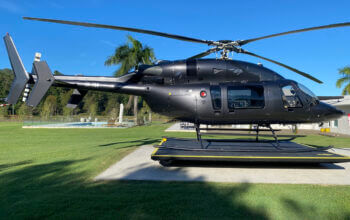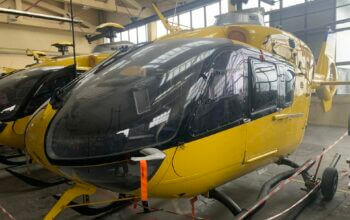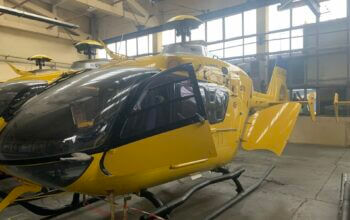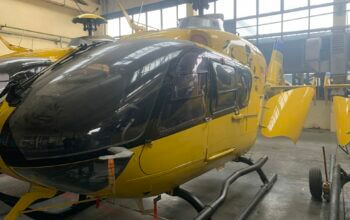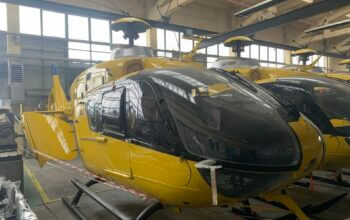Estimated reading time 4 minutes, 30 seconds.
Despite a series of hurdles, including a hardware issue with its refuelling boom last summer, the Boeing KC-46 Pegasus is now on pace for first delivery to the United States Air Force (USAF) by the end of 2017.
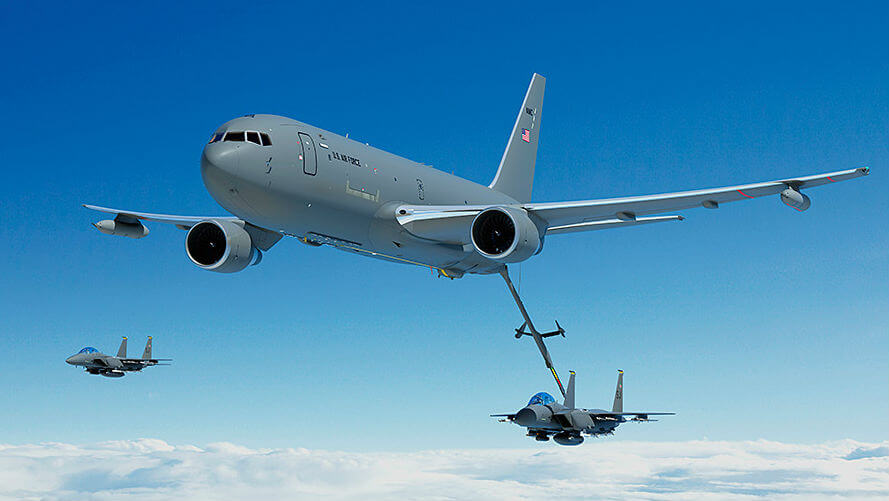
Boeing recently announced a US$2.1 billion (approx. CAD$2.8 billion) award for 15 more air-to-air refuelling tankers as part of a low-rate initial production (LRIP) lot signed in August 2016, bringing the total LRIP production to 34 aircraft.
The USAF, which selected the derivative of the Boeing 767 commercial airliner in February 2011, intends to acquire at least 179 tankers to replace the KC-135 Stratotanker. To date, Boeing has built four test aircraft and is completing a fifth at its production facility in Everett, Wash.
Canada might still be several years away from a competition to replace its fleet of Airbus A310-300 midair refuelling aircraft, but Boeing Defence, Space & Security is positioning the KC-46 to eventually fulfil that role.
“The A310s…are getting old, so we look at that as a future opportunity,” said Roberto Valla, vice-president of global sales for Canada, during a briefing in Everett last week. “For that we will compete with the KC-46.”
The Royal Canadian Air Force (RCAF) has on its books a future multi-role tanker program, known as the Strategic Tanker Transport Capability, valued at up to $1.5 billion. But RCAF commander LGen Mike Hood has said no decision will be made on the project until after the federal government reaches a conclusion on its next-generation fighter jet, which must be compatible with the tanker.
“[O]nce a decision is made on the next fighter aircraft, the next decision will be the tanker replacement,” Hood told the Commons Standing Committee on National Defence in April.
However, the Liberal government announced in November negotiations with the U.S. government and Boeing to acquire an interim fleet of F/A-18 E/F Super Hornets to fill a “capability gap” and delayed an open competition to replace the legacy fleet of CF-188 Hornets until later in its mandate.
Though the air force would still prefer to wait until after a new fighter is chosen before proceeding with a tanker replacement competition, it might need to act sooner.
An RCAF spokesperson said the weapon system manager responsible for maintenance of the A310 fleet, known as the CC-150 Polaris, has commissioned a study to assess the estimated life expectancy of the current fleet. The findings, which are expected this spring, will determine whether the life of the fleet can be extended until after the next-generation fighter is selected or “if the RCAF needs to proceed directly to the strategic tanker transport capability project to replace the CC-150 fleet.”
The RCAF operates a fleet of five CC-150 transport aircraft that were acquired in 1992. Two were converted to air-to-air refuellers in 2008 to support the CF-188 Hornets and are slated for retirement around 2026.
The Air Force also operates a fleet of four CC-130 Hercules that are used for tactical air-to-air refuelling to support the NORAD mission and fighter training exercises. The H-model Hercs have been in operation since 1992, and will reach the end of their expected service life in 2021.
When necessary, the RCAF has also leased tanker support from allies and frequently relies on coalition partners during operations. Even though Canada deployed a CC-150 to Kuwait for Operation Impact, pilots from 4 Wing Cold Lake, Alta., told Skies that most refuelling on missions was from American and other aircraft.
“There are options that will allow us to mitigate whatever program challenges we have,” Hood told the Commons committee.
